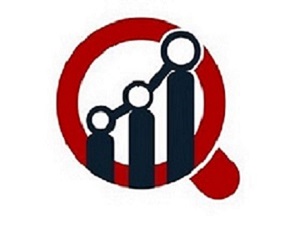
Europe Low-carbon Hydrogen Market is exhibiting a compound annual growth rate (CAGR) of 5.20% during the forecast period (2023 – 2032).
In the quest for sustainable energy solutions, Europe has emerged as a pioneer in the development of low-carbon hydrogen, a versatile and promising energy carrier. Hydrogen has the potential to play a pivotal role in the transition towards a greener and more sustainable future, as it can be produced using renewable sources and offers a clean alternative to conventional fossil fuels. This article explores the current state and future prospects of Europe’s low-carbon hydrogen market.
Request for a free sample copy of this report:
https://www.marketresearchfuture.com/sample_request/16200
Key Players:
The Need for Low-Carbon Hydrogen:
As the world grapples with the challenges of climate change and strives to meet ambitious emission reduction targets, low-carbon hydrogen has gained significant attention. Hydrogen, when produced using renewable energy sources, is considered “green hydrogen” and has minimal environmental impact. It can be used in various sectors, including transportation, industry, and power generation, to decarbonize traditionally carbon-intensive processes.
Current Market Landscape:
The European low-carbon hydrogen market has witnessed substantial growth in recent years, driven by a combination of government initiatives, private sector investments, and technological advancements. Several European countries have developed national hydrogen strategies, aiming to establish themselves as leaders in the production and utilization of low-carbon hydrogen.
Germany, for instance, launched its National Hydrogen Strategy in 2020, with a focus on developing a comprehensive hydrogen infrastructure, fostering research and development, and supporting international collaboration. Other countries, including France, the Netherlands, and Spain, have also unveiled ambitious plans to scale up their low-carbon hydrogen capacities.
Key Players and Projects:
Various companies and consortia have been actively contributing to the growth of the low-carbon hydrogen market in Europe. Notable players include major energy companies, technology providers, and startups. For example, Siemens Energy, Linde, and Air Liquide are among the key industry players driving the development of hydrogen technologies and infrastructure.
Additionally, there are numerous large-scale projects across Europe aimed at producing and utilizing low-carbon hydrogen. Projects like the NortH2 initiative in the Netherlands, the H2FUTURE project in Austria, and the HyDeal Ambition in France and Spain are examples of collaborative efforts involving multiple stakeholders to build a robust hydrogen value chain.
Policy Support and Funding:
To facilitate the growth of the low-carbon hydrogen market, European governments have implemented supportive policies and allocated substantial funding. The European Commission’s Hydrogen Strategy, released in July 2020, outlines a comprehensive roadmap for the development of a competitive and sustainable hydrogen economy in Europe. The EU’s Clean Hydrogen Alliance, comprising industry leaders, policymakers, and researchers, is actively working towards implementing the strategy’s goals.
Moreover, the European Green Deal and the NextGenerationEU recovery plan allocate significant funds to support the scaling up of renewable hydrogen production and the development of related infrastructure. These initiatives demonstrate a strong commitment to fostering innovation and accelerating the deployment of low-carbon hydrogen technologies.
Access Complete Report:
https://www.marketresearchfuture.com/reports/europe-low-carbon-hydrogen-market-16200
Challenges and Opportunities:
While the European low-carbon hydrogen market has made significant strides, several challenges remain. One major hurdle is the high production costs associated with green hydrogen compared to conventional hydrogen production methods. Infrastructure development, such as the construction of hydrogen pipelines and storage facilities, also presents logistical and financial challenges.
However, these challenges are accompanied by numerous opportunities. The increasing focus on research and development is expected to drive down production costs, making low-carbon hydrogen more economically viable. Additionally, international collaboration and partnerships can contribute to the development of a global hydrogen market, creating new opportunities for trade and cooperation.
Europe’s low-carbon hydrogen market is on the brink of a transformative era, with governments, industries, and research institutions working together to build a sustainable hydrogen economy. As technological advancements continue and economies of scale are achieved, the widespread adoption of low-carbon hydrogen is poised to play a crucial role in the transition to a cleaner and more sustainable energy landscape. The future of Europe’s low-carbon hydrogen market looks promising, with the potential to revolutionize energy systems and contribute significantly to global efforts in combating climate change.
More Trending Reports:
https://www.marketresearchfuture.com/reports/solar-inverter-market/companies
https://www.marketresearchfuture.com/reports/gas-turbine-market/companies
https://www.marketresearchfuture.com/reports/ac-drives-market/companies
https://www.marketresearchfuture.com/reports/battery-market/companies
https://www.marketresearchfuture.com/reports/biodiesel-market/companies
https://www.marketresearchfuture.com/reports/gas-insulated-substation-market/companies
About Market Research Future:
Market Research Future (MRFR) is a world-renowned market research company that offers a wide range of services, complete with accurate and precise analysis about diverse markets, sub-markets and target consumers. Our approach is a combination of extensive information and multiple data sources that help provide an exhaustive comprehension about the latest major developments to the client, in addition to future events and what measures and decisions to take on the basis of the same.